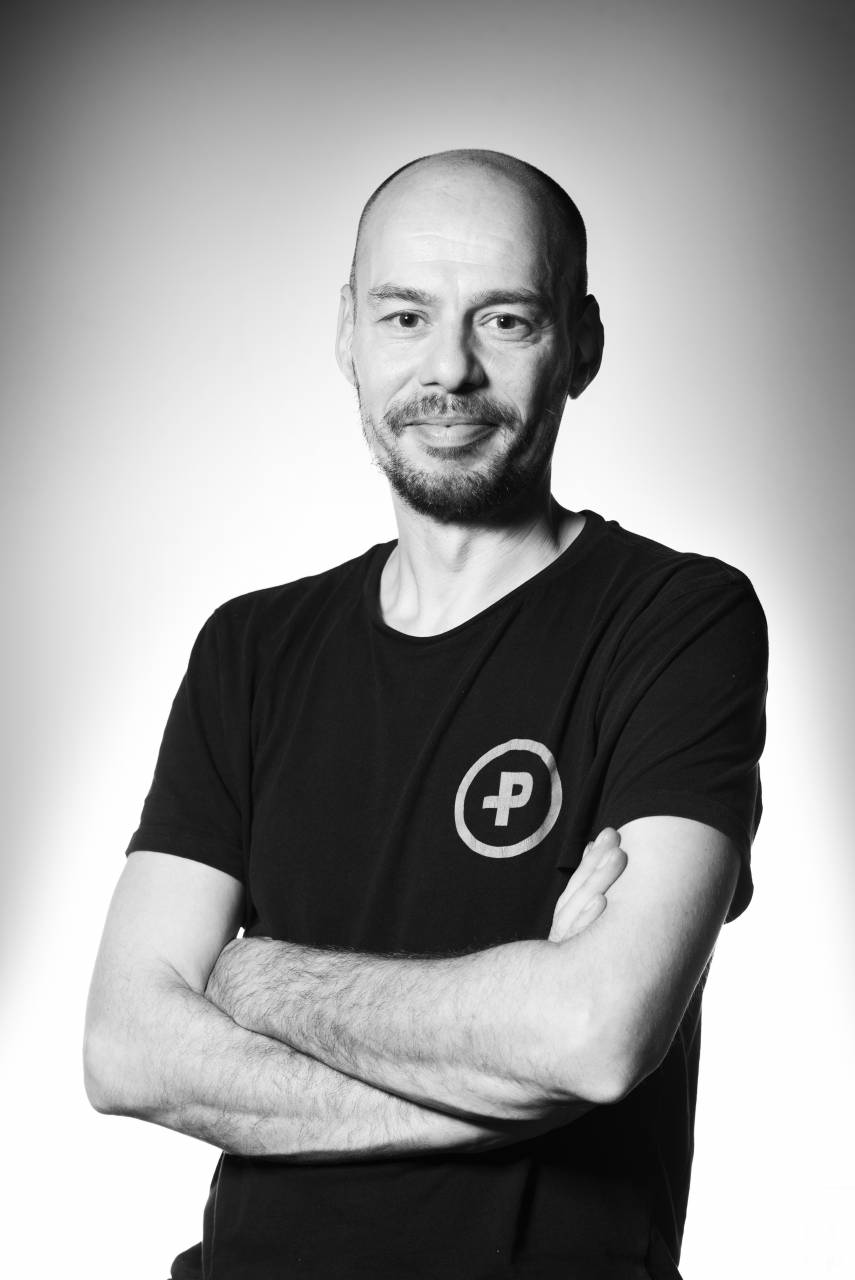Jachya Freeth

Jachya Freeth - stage master
- Stage master
"Without them, there would be no theatre..." This thought inspired our interview series, in which we take a twist on the audience experience.
► Jachya Freeth works with us as stage manager in IMITATION OF LIFE.
𝐏: What is your 'title' and what kind of activities are included in your job at Proton?
𝐉: I’m the stage master for the Proton performance of IMITATION OF LIFE, and in short I’m responsible for the setup, smooth working of the set during shows, the breakdown after that, and the safety of everyone on stage (and their good mood haha). I do have to say that I am very lucky that the small group of Hungarian technicians I work with for this performance are good, competent and great people!
𝐏: How long have you worked with Proton and how did it happen to meet and join our theatre? Please tell your story. :)
𝐉: I live in Germany and work there freelance as a stage technician in theaters or as a stagetechnician/master for theater groups on tour. I work with Proton since 2018, I was doing my master at the time and a friend and colleague in a Berlin theater (Benedict 'Bennie' Schröter) who was the stage master for IMITATION OF LIFE at that time sadly couldn’t continue touring. He thought it would be a great learning experience for me and asked if I wanted to take over. I’m really thankful to him for that, because the set was really challenging for me at that time and exactly what I needed with the weight, motors, water, electricity etc.
𝐏: Did you see other Proton performances? If yes, which one is your favourite? If no, please tell us, what do you appreciate in IMITATION OF LIFE, what do you think, why is it an important play?
𝐉: I haven’t had the opportunity to see other Proton performances. There was one I wanted and still like to see and that was EVOLUTION on the Ruhrtriennale 2019, I missed it because I had to work somewhere else.
For the rest I’m not really interested into most theatre performances itself, my interest is more in the technical side.
But I do have to say I like IMITATION OF LIFE a lot because of the whole package, with that I mean the combination of the acting (which is great, humor, sadness, everything) together with the technical side. And I think it is an important play because in my eyes it is a reflection of the society we live in now and still very relevant, also in other countries who have other minorities instead of the Roma.
𝐏: As a foreigner you probably read and interpret IMITATION OF LIFE differently as a hungarian would do that. Could you please describe how you see Hungary through the performance? Is it a real picture of the country? Did you experienced anything similar in your country?
𝐉: I cannot say I can see Hungary through this performance because I haven’t seen Hungary as a country, until now I have only been in Budapest and only seen parts of it. Like most Europeans I know Hungary as a country mostly from the news, especially when Viktor Orbán has one of his things again (or do I have to be careful here? Would be hard to work for Proton if I’m not allowed in the country haha). Anyway, like I said in the last question about reflection of society and relevance, I experienced similar things in the Netherlands and Germany.
𝐏: 'When everything goes wrong...' As IMITATION OF LIFE is technically a really difficult performance, it is almost impossible to avoid smaller or bigger problems. Where there any that was rememberable to you? What happened then?
𝐉: The worst what happened to me until now and what I always will remember was to make the decision to stop the performance because of technical issues. Luckily it was not my fault but still was a horrible feeling. What happened was that not long before a performance there was an electricity blackout in the whole neighborhood where the theatre was. Because all equipment was working at that time and not properly switched off, it probably caused a malfunction in some electronic systems like computers and beamers.
So during the show after around 25 minutes the beamers with the translation fell out, even after a reset they didn’t work properly. People in the audience angry and yelling and I get from the stage manager on my headset the question 'what do we do?‘ and I had to make the decision in a few seconds. That was really hard. Luckily the theatre director made the same decision 5 minutes later, so I knew I made the right decision. Later one thinks about what else could have been done, like at least the turning the set 360 degrees to give the audience something, but that is all afterwards thinking but good for an eventually next time although it was an experience I’d rather not have a second time haha. And until now it is still a mystery what exactly was the problem with the beamers, I really would like to know.